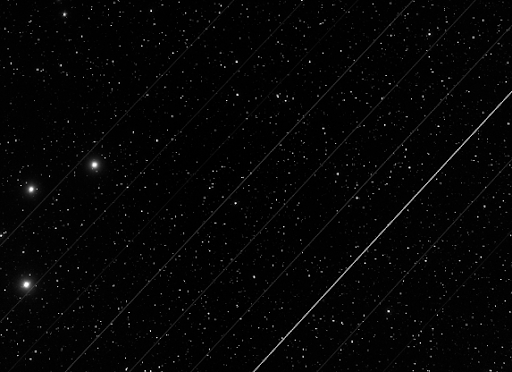Tag: DSSG
-
Heating Pumps in Alaska and Beyond

Project leads: Erin Trochim, Research Assistant Professor, Alaska Center for Energy and Power, University of Alaska Fairbanks Data scientist: Maddie Gaumer DSSG fellows: Aminat Adefolu, Silas Gifford, Katherine Grisanzio, and Brian Leung. Get the participant bios here. Decarbonization, a pressing global issue, necessitates the transition from carbon-intensive power to net-zero sources. The Arctic is an area of particular concern,…
-
Learning and Doing Data for Good 2022 Conference

Earlier this month the eScience Institute held the “Learning and Doing Data For Good” conference, an event for current students and alumni in university-based data for good programs, their project partners, and data science professionals. The goal was to inspire discussions and networking with others who are motivated to learn from and meet the needs…
-
Interdisciplinary Team Creates Tool to Detect and Quantify Satellite Streaks

By: Emily Keller-O’Donnell The recent growth of low-Earth-orbit satellites is posing a threat to a range of groups who rely on the sky for science, spirituality and tradition, by leaving a plethora of bright streaks across the night sky. A project team at the University of Washington Data Science for Social Good (DSSG) program is…
-
Research Team Examines the Impacts of Seattle’s Minimum Wage Ordinance on Household-Level Poverty

By: Emily Keller-O’Donnell Research about the relationship between poverty and the minimum wage in Seattle has often focused on examining the economic circumstances of individual workers. One of the projects of the Data Science for Social Good (DSSG) summer program at the University of Washington is expanding this lens to create data that views workers…
-
Interdisciplinary Team Designs Database to Advance ‘Self-Sufficiency Standard’ Research

By: Emily Keller-O’Donnell Determining the income level that working families need to meet their basic needs requires a dynamic approach. An interdisciplinary team at the University of Washington (UW) Data Science for Social Good (DSSG) program is laying the groundwork for the integration of multi-sourced data from across the U.S. to provide researchers and policy…
-
Applying ‘Geospatial First’ Approach to Estimating Heating Loads in Alaska

By: Emily Keller-O’Donnell Decarbonization efforts to mitigate the impacts of climate change face a unique challenge in Alaska. While about 70 percent of energy use in the state goes to heating, there is a lack of reliable broad-scale data on the portion of energy that is used for heating in buildings. An interdisciplinary team at…
-
Introducing the Data Science For Social Good 2022 Projects

By: Louisa Gaylord and Emily Keller-O’Donnell On June 13th, the University of Washington’s Data Science for Social Good (DSSG) summer program began with sixteen student fellows working on four project teams in collaboration with data scientists from the eScience Institute and project leads from academic institutions. Student fellows joined the program from colleges and universities…
-
Data Science for Social Good Team Builds Tools to Support Fairness in Computational Redistricting

By: Emily Keller-O’Donnell This fall, Congressional leaders will begin the state redistricting process that takes place every ten years to reflect population changes captured by the U.S. Census. As the process gets underway, a team in the University of Washington Data Science for Social Good (DSSG) program is creating a resource guide to help nonpartisan…
-
Data Science for Social Good: Exploring Geographic Factors of Seattle’s Minimum Wage Law

By: Emily Keller-O’Donnell When the Seattle minimum wage law took effect in 2015, it dovetailed with an increase in housing prices as an influx of high-wage technology workers moved to the region. For an interdisciplinary team in the University of Washington Data Science for Social Good (DSSG) program, this raises the question of whether some…
-
Data Science for Social Good Program Launches for Summer 2021

By: Emily Keller On June 14th, the University of Washington’s Data Science for Social Good (DSSG) summer program began with eight student fellows working on two project teams in collaboration with data scientists from the eScience Institute and project leads from academic institutions. Student fellows joined the program from colleges and universities around the country.…
